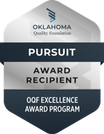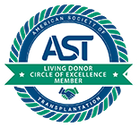WHY WE DO NOT WANT TO MOVE TO AN OPT-OUT REGISTRY
We would like to educate our partners and supporters on LifeShare’s position on the Opt-Out Registry. While there are no bills this session pertaining to an Opt-Out Registry, it seems the topic is always a conversation point and some seem to think presumed consent would help eliminate the organ transplant wait list.
What kind of registry do we currently have?
Oklahoma, along with all other states, have opt-in registries. An opt-in registry asks people to record their choice to donate. It also allows grieving families to choose donation for those not registered.
So what is an opt-out registry?
An opt-out registry assumes that all people want to be register organ, eye, and tissue donors, unless they take their name off the registry and actively opt out of registry. This time of registry assumes everyone’s consent to donate unless otherwise documented.
What kind of registry do we currently have?
Oklahoma, along with all other states, have opt-in registries. An opt-in registry asks people to record their choice to donate. It also allows grieving families to choose donation for those not registered.
So what is an opt-out registry?
An opt-out registry assumes that all people want to be register organ, eye, and tissue donors, unless they take their name off the registry and actively opt out of registry. This time of registry assumes everyone’s consent to donate unless otherwise documented.
WHY IS OPT-OUT RISKY?
Controversial and Self Limiting
People concerned about privacy and government overreach will opt out because they object to the system, regardless of their actual inclination to donate.
Binding
Opting out is different than not opting in. People may not register for many reasons. Currently when a person does not register to be a donor, they are not saying no to donation, they are just not registering a decision. If a person were to opt out of a registry, they are “refusing” to remain registered, which would bar donation professionals from discussing the option for donation with the family members of a person who has passed away. Many grieving families find healing and hope in giving the gift of life.
Isolating
All 52 state and territory-based donor registries in the U.S. now operate on the opt-in model. If a state were to move to the opt-out model, it would exclude the registry from several national registration initiatives.
Expensive
Public education has promoted the opt-in system for decades. Educating every existing and newly arrived Oklahoman on the opt-out system would require a massive investment in a statewide multicultural public awareness campaign. Also, all state and tag agency systems and paper forms would require revision and reprogramming. This would also require retraining of all 296 tag agency offices and staff statewide on for the new system.
People concerned about privacy and government overreach will opt out because they object to the system, regardless of their actual inclination to donate.
Binding
Opting out is different than not opting in. People may not register for many reasons. Currently when a person does not register to be a donor, they are not saying no to donation, they are just not registering a decision. If a person were to opt out of a registry, they are “refusing” to remain registered, which would bar donation professionals from discussing the option for donation with the family members of a person who has passed away. Many grieving families find healing and hope in giving the gift of life.
Isolating
All 52 state and territory-based donor registries in the U.S. now operate on the opt-in model. If a state were to move to the opt-out model, it would exclude the registry from several national registration initiatives.
Expensive
Public education has promoted the opt-in system for decades. Educating every existing and newly arrived Oklahoman on the opt-out system would require a massive investment in a statewide multicultural public awareness campaign. Also, all state and tag agency systems and paper forms would require revision and reprogramming. This would also require retraining of all 296 tag agency offices and staff statewide on for the new system.
OPT-IN IS WORKING
More than 64 percent of Oklahoma adults are currently registered to be organ, eye and tissue donors, which is higher than the national average. Opt-in is already accepted and straightforward in our state. So next time you hear someone say an opt-out registry is the answer to the waiting list, let them know LifeShare does not support an opt-out system.








